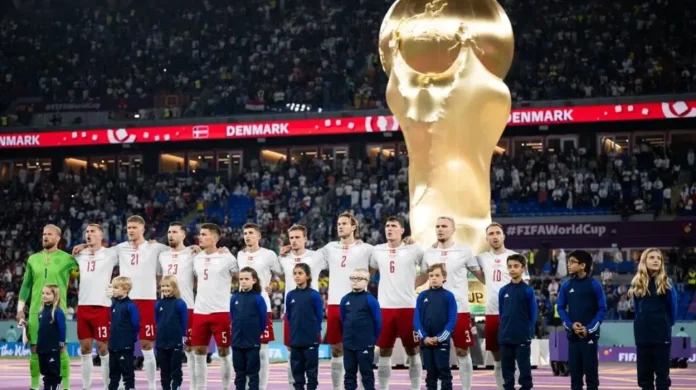With FIFA preparing the biggest volunteer program in its history, before the World Cup 2026, recruiting almost 65,000 volunteers in Canada, the USA, and Mexico, the importance of planning the role of such unpaid representatives became obvious. They include welcoming the fans, logistical services, accessibility services and emergency response. With an awareness of the value of volunteers, FIFA President Gianni Infantino said of them recently,
“They are the heartbeat of the tournament.”
These undertakings are not limited to labor only: they give the participants exclusive chances of cultural experience, other individuals, and self-growth.
In Canada alone, organizers expect to deploy some 6,000 volunteers. Each and every one of them will have undergone a systematic training process that commenced several months earlier, and each of them is expected to have worked at least eight shifts in the June 11-July 19, 2026 window where the event will take place. It is a large organizational and human investment, which has ensured the successful delivery of the global spectacle.
Benefits and ethical considerations in volunteer engagement
Volunteers are rewarded through their direct monetary compensation in the form of offered official gear, food on shifts, and transportation service in hosting cities like Toronto, access to special events and reward recognition certificates. These perks are relevant in making people motivated and justification of time and opportunity costs. However, they come within the frames of a multibillion dollar competition FIFA allegedly possesses more than 3 billion dollars in reserves by 2025, posing important questions regarding equity and ethics of free work to sustain very profitable ventures.
Volunteer roles: civic engagement or exploitation?
Although most of the people volunteering show great commitment to be involved in such an important cultural industry, critics say that volunteer’s free work in funding high-income, massive organizations have an ethical contradiction. Advocates respond that volunteering is a type of civic engagement that enhances skills and networks and civic pride when accompanied by meaningful support and regard to the rights of the volunteers.
Rights and protections: building ethical frameworks for volunteers
Although the volunteers are unpaid, they will still need the protection similar to those provided to the workers. This would incorporate stable working environments, clarified duties and responsibilities, adequate training, continuous back-up and acknowledgement of their contribution and effort as well. Since the participants represent those of different walks of life, students, retired persons, and communities speaking different languages, making it accessible and inclusive will be paramount in the creation of an all-encompassing equitable volunteer program.
Fair treatment and inclusivity
There is increased talk of minimal wages or improved reimbursements to counter the use of volunteers. By providing fair participation, one can ensure that no one group is further disadvantaged because of poor economic and socioeconomic status. Programs that offer free transit or transparent orientation—like those organized in Toronto—signal progress by easing access and emphasizing appreciation.
Effective volunteer management: recruitment, retention, and morale
Volunteers for FIFA 2026 will be selected through multilingual applications, background checks, and local engagement sessions. Months of professional training precede event deployment, fostering readiness and confidence. This structured preparation encourages reliability and consistency across large, dispersed teams.
Balancing expectations with commitment
Volunteers often face demanding schedules and workload, requiring stamina, adaptability, and flexibility—even while managing other personal or professional obligations. Organizers must clearly communicate expectations and cultivate a culture of gratitude and respect. Technology tools—like scheduling apps and feedback platforms—can improve experience by simplifying logistics and communications.
Broader significance: fairness and program sustainability
The 2025 volunteer mobilization highlights broader debates about unpaid labor supporting high-revenue events. Media and public discussions focus on disparities between organizational profits and volunteer compensation, emphasizing the importance of ethical oversight.
Toward more sustainable volunteer models
Event organizers are exploring hybrid models that may include small stipends, enhanced recognition, or pathways to professional development for volunteers. Early adopters of these concepts may set new operational standards, pushing the sector toward more ethical and impactful volunteer programs.
This person has spoken on the topic and summarized the situation accordingly:
FIFA by no means the only major sporting event that does volunteer programmes but does seem quite odd to me that an organization boasting about projected $13bn revenue + getting tax breaks + most costs covered by U.S. states and cities doesn’t pay people to do this stuff. pic.twitter.com/irPIrfmp7f
— Adam Crafton (@AdamCrafton_) August 11, 2025
The reliance on volunteers in mega sporting events highlights a complex fusion of civic enthusiasm and practical necessity. The unfolding model for FIFA 2026 signals that future volunteer programs cannot remain static. To genuinely honor the invaluable contributions of unpaid individuals, organizers must evolve policies toward fairness, inclusivity, and sustained recognition—elevating these roles from auxiliary labor to celebrated partners in global events.













